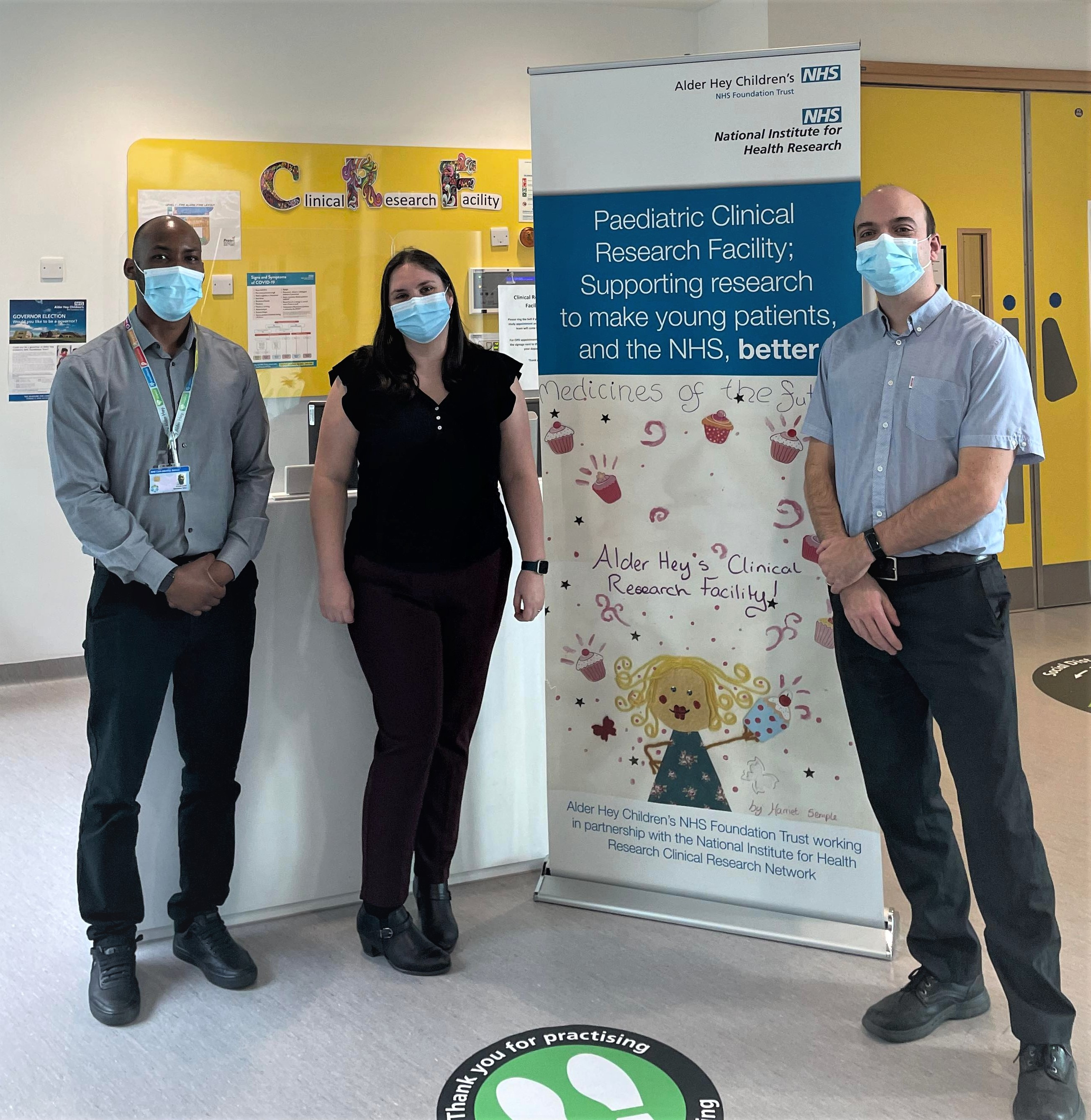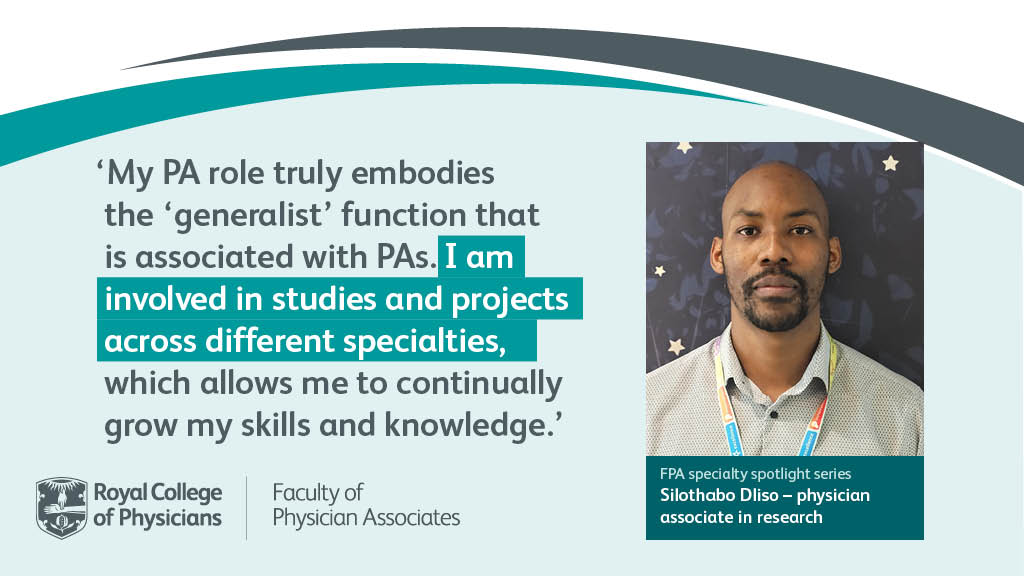Physician associates in research
Physician associate (PA), Silothabo Dliso qualified from the University of Liverpool in 2020. He is the UK's first PA to work in paediatric clinical research, and is based at Alder Hey Children's Hospital. He is also the chair of the RCP Research Committee. Here, Silothabo shares with us his experience of working as a PA in research.
Can you tell us about your experience working as a PA in research?
This role has been such an interesting journey of discovery; not just for me, but for others who may not have known what a PA was or that they could work in research. When I started this job, I was not aware of any other PAs working in research, and so had no template to follow. As such, I’ve had the opportunity to build up the role myself, with the support of my supervisor and other colleagues. It has been a great learning experience, as I knew nothing about clinical research at the beginning. I’m becoming more knowledgeable and gaining new skills, and there is a great culture at Alder Hey that encourages people to learn and develop – thanks to this, my role hasn’t felt stressful at all.
As a PA in paediatric clinical research, what does your role involve?
My role is varied and dynamic. I support the delivery of studies within the Clinical Research Division, particularly those which fall under the purview of the Clinical Research Facility. My duties can range from protocol writing/study design to study set up, recruiting, and consenting, as well as documentation, sample collection and examinations.
I also work to promote research across the trust to other staff groups, encouraging, facilitating, and supporting them to be involved in research activity. This allows them to understand more about what happens in research department and is an opportunity for them to gain research specific experience, too.
I also work a with PA students, facilitating and supporting them to participate in research. When I was a student PA, there were not many opportunities for me to get involved in audits or quality improvement – and certainly not in research. Therefore, I am committed to ensuring that PAs of the future are offered the opportunity to understand more about the research role and what is involved. Every group of PA students that has been to Alder Hey since I started working there has had the option to take part in a research activity.
What research projects have you been involved in?
My PA role truly embodies the ‘generalist’ function that is associated with PAs. I am involved in studies and projects across different specialties, which allows me to continually grow my skills and knowledge. Having so much variation in my job is one of the most enjoyable aspects of role. I like that each day of the week I could be doing something different – it keeps me interested and I am never bored.
I work on projects in endocrinology, rheumatology, nephrology, and metabolic medicine, among others. The type of projects I am involved in ranges from observational cohort studies, vaccine studies, drug rollout, audits and quality improvement projects.
Working on multiple projects has allowed me to learn additional skills, including writing articles for journals and designing plan studies. I have also learned practical skills including, history taking for research and various forms of examinations.

What does the future look like for you as a PA in research?
I am focused on continuing to help shape the future of PAs in research and raising our profile within the world of research. As the chair of the FPA’s Research Committee, I will work with colleagues to promote PAs in research, and to make research engagement accessible to all PAs at any stage of their training or career.
PA regulation will definitely open more doors for PAs to be involved in research, especially where clinical trials of medicinal products are concerned. However, the lack of regulation is not an insurmountable limitation. There are plenty of ways for PAs to be appropriately involved in all types of studies. I hope to explore those options along with other colleagues, and inform other PAs on how they can navigate through restrictions and challenges they may currently face when trying to engage in research activity.
What advice would you give to a PA wanting to enter research?
Firstly, I would suggest looking internally at what you can do within your current role. This may include audits, service evaluations, quality improvement projects, or looking at if there is anyone in your workplace who is active in research active and if you could work with them and support their research projects.
There are also resources and fellowships, from organisations including the National Institute for Health and Care Research and Primary Care Academic CollaboraTive, which can help you get started in research. Furthermore, as the FPA Research Committee becomes more established, please contact us, and we can potentially answer questions – or signpost you to someone who can offer more help.

